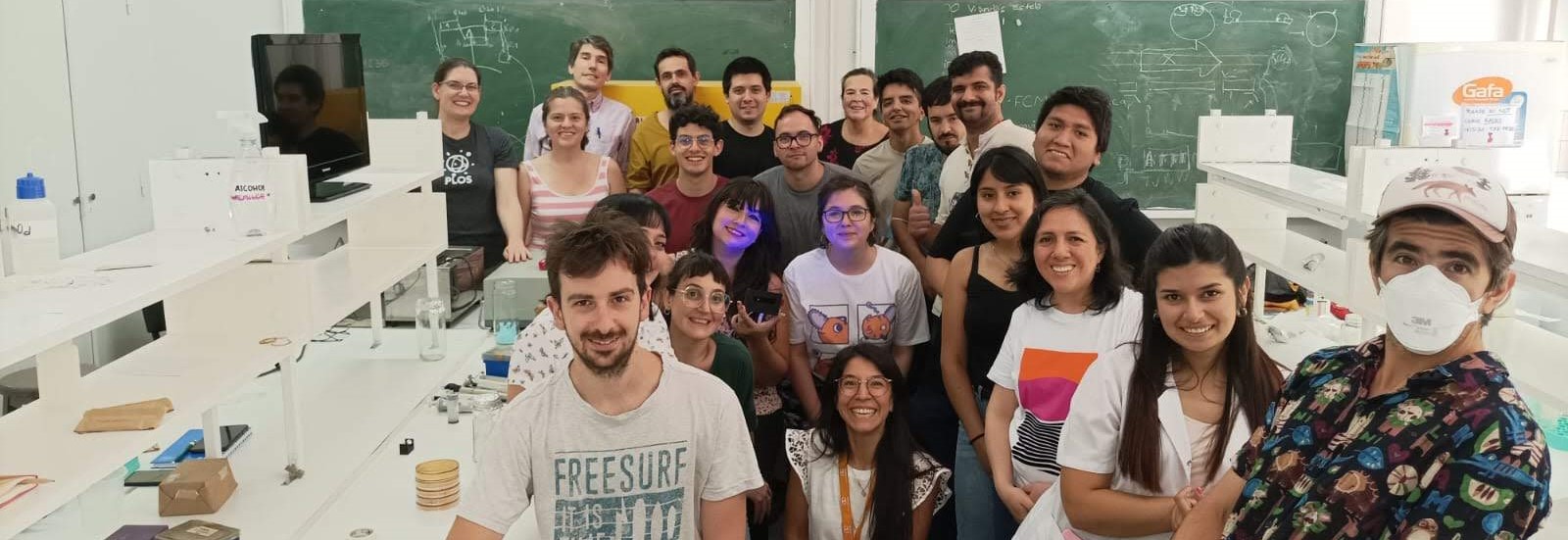Reclone Network: open biological reagents for biomedical research
The post below is a submission to the Chan Zuckerberg Initiative Request for Information on open science for biomedical research in Latin America, co-authored by the Reclone Latam community.
What is the challenge?
Supply chains for biological tools in Latin America are expensive and prone to delays, sometimes taking weeks to months. Researchers pay significantly more than the US due to supply chain intermediaries and higher shipping costs, and are often restricted from local sharing by the sales contracts and institutional MTAs. These issues, which are not experienced by researchers in higher income countries, introduce inequity in scientific opportunities and reduce productivity for Latin American researchers. They limit the type and scale of research undertaken, and ultimately constrain local ability to respond to public health crises (e.g. COVID) and generate the knowledge needed for science to address all diseases, but especially those disproportionately affecting Latin America e.g. Zika, Dengue or Chagas disease. Openly sharing biomaterials as part of open science practices, and especially sharing the materials needed to produce tools and reagents locally, could help. However, biomaterials are a neglected research output within the broader open science movement. They have their own legal, infrastructural and scientific requirements but researchers, and critically their institutions, have limited awareness or training in best practices for open sharing. Institutions frequently have policies and practices that disincentive sharing, contributing to limited adoption of open science tools.
How could the challenge be addressed?
A practical and innovative solution to this problem is building a network of Latin American researchers who develop and use open biological materials and reagents, and can support others to do the same. This could be accomplished by establishing Reagent Hubs at universities; developing and delivering open training on biomaterial sharing for researchers, universities, technology transfer professionals and policy makers; proactive community building; and providing fellowships and other knowledge exchange mechanisms across the region. It would also be important to train and catalyze a community who understand how to develop, share and maintain open biomaterials: e.g. patent laws, material transfer agreements, identifiers, documenting best practices, collaborative development practices, etc. This would involve Latin American universities, research institutes, policy makers, local reagent manufacturers, national and international biological repositories (e.g. Addgene). It would directly accelerate biomedical research through increasing timely and affordable access to essential research tools that are well-documented and properly licensed for research, innovation and manufacture. It could be built up over a period of 3-5 years and the resources needed would range from $30k per annum for delivery of a basic training programme to $300k+ per annum for a fully fledged programme of activities described above.
What is the value proposition of your solution to Latin American biomedical researchers?
The direct value proposition is significant acceleration and lowering of research costs through enhancing timely and affordable access to reagents, cell lines and microbial strains that underpin experimental biomedical research. We note that a cultural shift towards open science can only be catalyzed by enabling the researchers that share this philosophy to do their research in the first place. Sharing open tools for knowledge production, including biomaterials, will increase the scale and speed of data and publications: the typical focus of open science. Translational activities may benefit even more from open enabling technologies, and one outcome could be universities widening their toolbox of translational mechanisms, which usually focus on proprietary IP to the exclusion of other strategies. Latin American companies and public-private partnerships using open resources to supply researchers, or as a platform to translate findings into products, will incur fewer transaction costs (e.g. onerous MTAs) and could help counter a misconception that open science cannot lead to economic benefit; at the same time as directly helping biomedical research(ers) to benefit society. Overall, potential outcomes include increased access to tools, more rapid basic and translation biomedical research, reduced barriers and cost for sharing across institutions and even sectors.
What progress have you made to date?
Reclone (the Reagent Collaboration Network) was founded in 2020 to convene a community that could address inequities in access to reagents globally. Reclone has since convened five symposia, over 20 community meetings including information on open material transfer agreements and other aspects of open materials, published ten open protocols via protocols.io, and developed an open source Research in Diagnostics DNA Toolkit for manufacturing key molecular biology enzymes, with the involvement of several Latin American researchers. This toolkit, and the Open Enzyme Collection that Reclone now stewards, have already reached 500 researchers in approximately 50 countries. We are currently: i) establishing a Reclone Hub in Argentina following a successful training for 20 researchers from six Latin American countries in Mendoza in Dec 2022 and discussions with local TTOs; ii) running an invitation-only workshop series on best practices for open biosharing, which will generate a report with recommendations including on how to embed biomaterials into more established open science practices; iii) actively contributing to open science discussions at meetings of UNESCO in Latin America, in university TTOs and other fora in the region (e.g. CILAC); iv) encouraging public universities to adopt open science tools for teaching/research on biomedical sciences; v) set up a Center for the production of recombinant proteins at the University of Buenos Aires, which is already distributing molecular biology enzymes at a very low cost.


